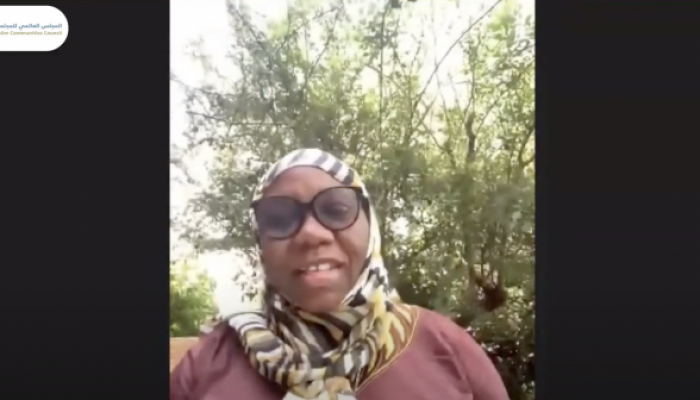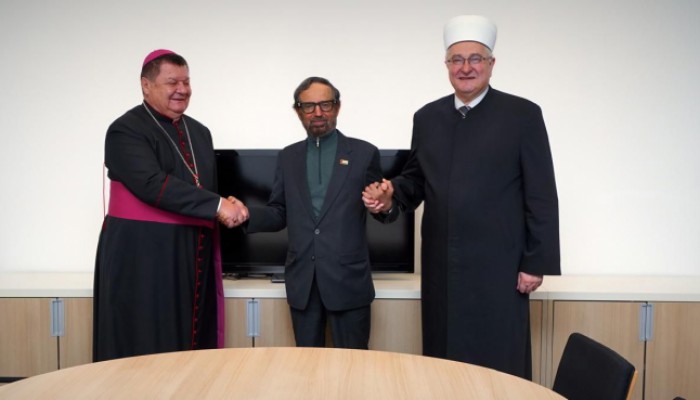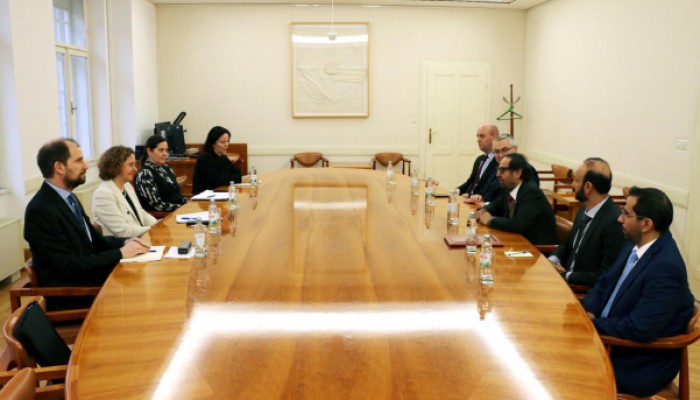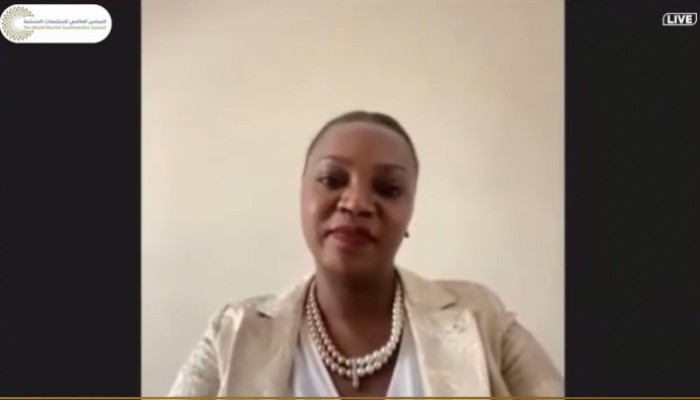
TWMCC Holds "Muslim Women in Africa" Online Lecture
- 2025-May-14
The World Muslim Communities Council (TWMCC) held an online lecture, titled "Muslim Women in Africa," presented by Dr. Widade Naibi, Director of the Ibn Battuta African Institute, where she addressed the vital role of Muslim women in the African continent, despite the challenges and complex circumstances they face, within the Council's series of lectures.
During the lecture, Naibi affirmed that Muslim women in Africa today stand proud, fulfilling their roles with awareness and responsibility. They care for their homes and children, support their husbands, and offer love and generosity, serving as the solid foundation upon which men stand.
She pointed out that women are the cornerstone of religious and social formation in many African societies. It is with them that stories begin, and upon them that the families and communities are built, thanks to their spiritual pride and deep-rooted faith.
She added that the participation of Muslim women in the workforce is not a recent phenomenon but rather a natural extension of deep historical roots. She emphasised that their active presence often takes place quietly, where they work silently, pray patiently, and achieve without noise. Historical circumstances, including colonialism, helped shape this model of quiet strength. However, with independence, women have become a latent force driving the continent forward.
She also highlighted that Muslim women in Africa carry a profound sense of pride in their identity and continent. They bear double responsibilities when they work, balancing family and professional duties, drawing on the strength of their faith and resilient personalities.
She also addressed the reality of some women who have been drawn to superficial Western appearances through social media, asserting that this group does not represent the mainstream. The majority of African women, she said, remain deeply rooted in their authentic identity.
Concluding, she stressed that spirituality and worship are not in conflict with daily life; rather, they complement it. She praised the African Muslim woman for mastering this balance with innate awareness.
Born on the noble soil of Africa and walking in the footsteps of proud grandmothers, African woman cooks with dignity, preserves language, storytelling, and religion; she is not deceived by deceptive appearances, nor does she abandon her roots—instead, she embraces knowledge and enlightenment without relinquishing her authenticity.







